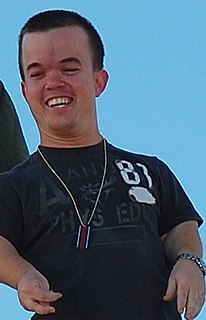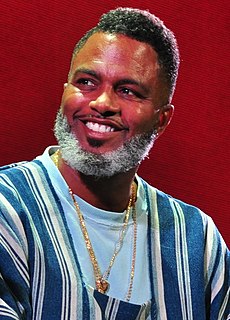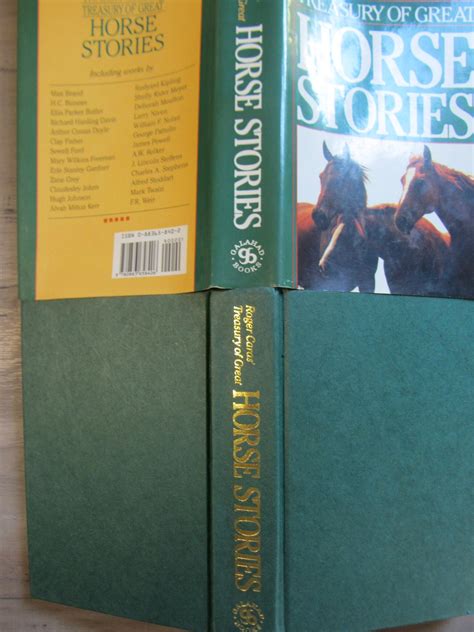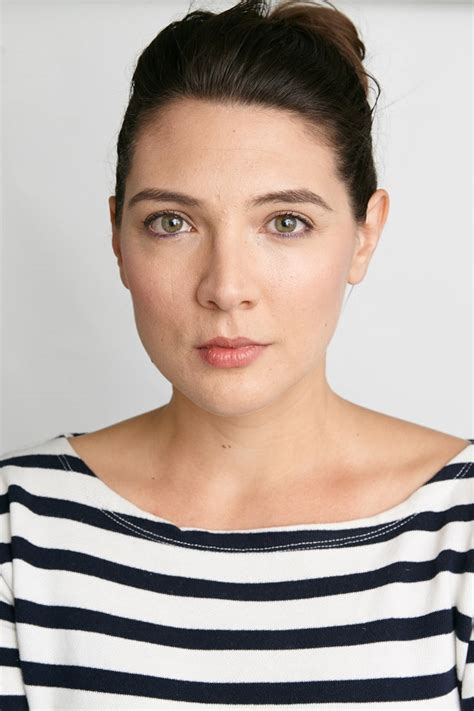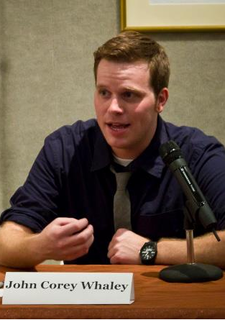A Quote by Jesmyn Ward
I feel a lot of pressure when I'm writing because I know, you know, if they looked at a synopsis of the book, what they read could only confirm all the stereotypes that they have about us and about people like us.
Related Quotes
The personal boundaries, I think for comedians they're a little bit different anyway, but I think people - feel free to do stuff - It's interesting with comedians because when we walk on stage, oftentimes we're talking about ourselves for an hour and we're talking about very intimate details, so after hearing us for an hour, a lot of people feel very comfortable with us because they feel like they know us and they're our friends because we just told them our innermost secrets and details of our lives for an hour. What they forget is we know absolutely nothing about the audience.
The second book, which was probably more from a professional standpoint - when I read Junot Díaz's Drown, I was like, Oh my god, you can write these stories and people will actually read them beyond your own little community. This guy's book is blowing up and it seems like [he's writing about] the neighborhood that I grew up in. That was a big deal. I read that in graduate school, so that's when I was really taking writing seriously, but I didn't know you could do it. I didn't know you can actually be an author. It was a weird epiphany.
I'm not really sure why so much people still listen us. I think we live in an era when people get attached to stuff, and it means something. Then I think a lot of people heard about it over the years - like somebody's older brother might tell them, you know, because we're from his era, and he might be like, "You need to listen to this; this is what it's all about," you know what I mean? I don't know, man, it's hard to say. But it makes us feel special.
In some ways, in the U.S. we don't know how to be. I think in a lot of ways America is about liberation and about change and progressive human relations. And because of that, I feel like that we're confused about who we're supposed to be and what it is that's supposed to satisfy us and make us feel fulfilled.
Cats make one of the most satisfying sounds in the world: they purr. [...] Almost all cats make us feel good about ourselves because they let us know they feel good about us, about themselves, and about our relationship with them. A purring cat is a form of high praise, like a gold star on a test paper. It is a reinforcement of soemthing we would all like to believe about ourselves -- that we are nice.
We often compare the experience of writing a book to that of playing God. It is up to us, and only us, to determine what happens to the people we invent. It is for us alone to determine what is good and bad, just and unjust, appropriate and inappropriate for the worlds we create. I love that about writing books.
Writing helps us heal in certain way, but it doesn't make the experience of thinking about writing that occasion any less painful. When you revisit trauma, you don't know what's going to be triggering for you because you don't know how it's connected in your mind. So in the same way when we write something, it doesn't completely resolve the experience for us. It can feel therapeutic, but that's not the reason why I do it. I do it to ask a question, or just to find meaning.
I think a lot of us are looking for the same thing. I feel very lucky to have a definitive moment where I know everything shifted in me, and it was the moment I read that quote. Because I thought, A. That's everything I know about vulnerability. It's not winning, it's not losing, it's showing up and being seen. B. That's who I want to be.
I don't know why one author writes westerns while another writes detective novels. You don't know why. You go where the intensity is. I feel most comfortable writing about monsters. It's possible that I feel like a monster myself. Or maybe it's because we all have a monster inside of us, a vampire, a ghost, a witch or a werewolf. You do it because it works and it feels really right and authentic.
I don't know enough about the lower classes to write about them. I don't feel with them, and that could be regarded as a defect, a limitation of my imagination. I could put myself in their position, but not politically. The idea of writing a story or a book about somebody completely devoid of appreciation of anything I care about is completely foreign to me.

